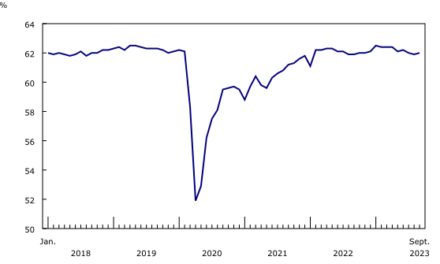By Dr. Melissa Franklin | Special to California Black Media Partners

OPINION (CBM) – Black mothers are more likely to die due to complications from pregnancy and childbirth than pregnant women of all other races. This is a shameful injustice plaguing the Black community, one that is over 400 years in the making.
Black women are 1.6 times more likely to experience more maternal mental health conditions, including prenatal and postpartum anxiety and depression, than women of other races, according to the American Hospital Association Institute for Diversity and Health Equity.
These injustices are killing Black women who are well-resourced and educated like Olympian Tori Bowie, as well as those enduring economic hardship. It is also harming their babies. And although this crisis has attracted national attention, it remains unaddressed.
For Black women, like me, who have experienced premature childbirth, the trauma and guilt of not being able to bring our babies full term can be long-lasting. Those psychological scars exist along with the other physical and mental threats to our health and wellbeing.
Both of my children were born three months early, despite my best efforts. I had a steady job, decent income, post-graduate education, a good bill of health and a stable relationship. Yet, my health and life were threatened in both of their births. One would think that such an experience would place me in a unique category. However, as a Black woman, it does not.
In Los Angeles County, Black women die at three to four times the rate of other races due to pregnancy-related complications, and Black babies die at two to three times the rate of any other race before their first birthday. Black babies are born premature at greater rates than any other ethnic group, which can lead to long-term health and developmental challenges. The Black community is also shouldering a disproportionate amount of the mental burden of tragedy and loss when it comes to pregnancy and childbirth.
To solve this problem, we must acknowledge three truths:
1. The problem is not with Black people.
2. It’s the system that is failing Black people.
3. This problem is solvable, and Black people deserve to have joyous and healthy births.
The data coupled with our lived experiences and history as Black people tells us something is amiss. College educated Black women experience worse birth outcomes (i.e., death, premature birth, health complications for mother and child) than White women with high school diplomas. Black women who are non-smokers have worse birth outcomes than White women who smoke. The root problem is also not “teen pregnancy.”
Black teens have better birth outcomes than older Black individuals.
The root causes of the problem are complex. In short, stress kills.
The stress of generations of racial harm compounded by ongoing, exposure to racist treatment, prejudice and oppression, can be deadly. This stress is especially deadly when it is exacerbated by systems of care that disrespect and withhold quality care from Black people. The social contexts that imperil Black individuals to a greater extent than other races, such as homelessness, criminal justice injustice, education system injustice, and child welfare system injustice create a perfect storm for these root causes to grow.
There is hope for change. There are a number of initiatives underway to address the racism and stress that are at the root of the problem. These initiatives range from legislation such as the Federal Momnibus Act, California Senate Bill (SB) 65 (California Momnibus Act) and California SB 464 (Dignity in Pregnancy Act) to Statewide Initiatives such as the Perinatal Equity Initiative. In Los Angeles County, the Department of Public Health’s African American Infant and Maternal Mortality Initiative (AAIMM) brings together public agencies, community-based organizations, and advocates to raise awareness and transform how systems treat Black people.
But what can a Black woman/person do if they are pregnant or want to become pregnant one day? We can reclaim justice and joy by activating a village to address the stress. Until racism, racial microaggressions and poor treatment by the health care system are resolved, mental health support from multiple places is a powerful tool we can access.
This means building a village to provide social and emotional support, and as well as advocacy during your childbirth journey. Available resources include:
Black Infant Health Program — prenatal groups that bring together Black pregnant folks in a group setting. They offer support, resources, and a coach to help you through your journey.
Doulas – birth partners who provide emotional and physical support during pregnancy, childbirth, and the early postpartum period. Los Angeles County AAIMM Doula program provides doulas services by Black Doulas for Black families.
Group Prenatal – a small prenatal care group of pregnant women with similar due dates led by a clinician.
Home Visitation – assistance to expecting families on their journey through pregnancy and early parenting, delivered by a public health nurse or a parent coach.
Midwives, Maternity Homes and Birth Centers – Important sources of caring, quality support and advocacy.
While agencies and advocates are mounting efforts, we all have an important role. Even if you have no plans of becoming pregnant or parenting in the future, you can still make a difference when it comes to the mental health of childbearing moms.
If you know someone who is pregnant, connect them to a resource to assist them on their journeys. Be a friend and advocate. Take ACTION to show them they have a village –offer to cook/bring a meal, go with them to their appointments, provide a shoulder to lean on when they are exhausted.
While we work to make this world a less traumatizing place for Black people, we can also take steps to prevent the stress of that trauma from killing our mothers and our babies. We deserve to experience joy, abundance, and beautiful, healthy births. It is our birthright.
About the Author
Dr. Melissa Franklin is the Director of maternal, Child and Adolescent Health at the Los Angeles County Department of Public Health.
Chelsea, an expectant mom, and Danica, her doula, discuss the delicate connection between mental health and maternal care. Watch the video.



